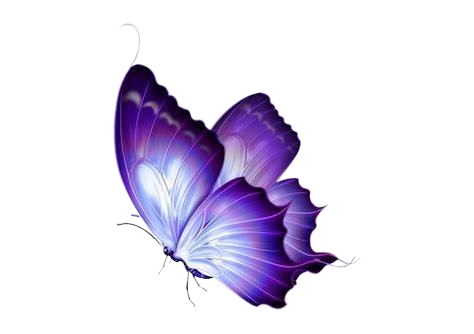How can we remain centered and peaceful within ourselves, I was once asked, when the whole world seems so out of control? “Everything I can think of is being threatened at this time—we live with escalated fear and grief from pandemics, wild fires, ongoing wars and violence; the economy is shaking, cuts are being made to the programs that most contribute to our national health, education, and well-being, and the environment is being assaulted to such a degree that the very planet that sustains us is threatened.”
The simple answer is that we must choose peace. We must hold it in our thoughts, our attitudes and our actions. While the actions and attitudes of politicians, world leaders, or anyone else is out of our control, we have control over our own thoughts, our own feelings and the energy we put out into the world. We must be the peace we wish to see in the world, as Mahatma Gandhi once said. When we hold peace, compassion and kindness within ourselves, we become a part of the healing. When we allow ourselves to get pulled into the chaos and violence, whether through fear or anger or a sense of separateness, we are contributing to the darkness that threatens to overwhelm us.
Even when we feel helpless about what we ourselves can do, we have the power of prayer and intention. Prayer and intention (alignment with the higher principles of compassion and wisdom and the value and equality of all life) pave the way for powerful and positive change. Prayer and intention lead to right action. As we individually shift our consciousness in the direction of peace and goodwill, we join each other in helping to tip the balance in that direction.
If we wish to grow our awareness and effectiveness in life, we must ask ourselves some tough questions. For example, what is the motivation for the choices we make, whether individually or nationally or collectively? If our motivations come from fear or hatred or revenge or greed, no matter how nobly we attempt to clothe them, they will create more of the same. Our actions must be motivated by higher principles of compassion, respect despite differences, and the application of the Golden Rule if we are to create more of the same.
The philosophy of war or violence remains prevalent in the world today. It is the philosophy that the end justifies the means, that if we despise those who murder or confiscate or exploit it is justifiable to murder, confiscate, and exploit in whatever manner it takes. If innocent victims are caught in the crossfire, that's an acceptable and necessary evil. That evil is necessary or ever acceptable, is a major misconception. It is neither. It is against the dictates of our higher knowing and our divine heritage.
The peace philosophy is simple. It is that the means determines the end. Only a good means brings about a good end. All of the religious/enlightened teachers have said the same thing in different ways. My own dear friend and mentor, a woman who called herself Peace Pilgrim, said it this way: Evil must be overcome with good, hatred with love, and falsehood with truth.
We can overwhelm ourselves when we try to take on too much. It is essential to realize that it is not our task to fix the entire world at once, nor does the burden lie solely on our individual shoulders. We have a responsibility for our own healing, and we must play our part in helping to heal the collective whole.
Never was this lesson more obvious to me than when I was diagnosed with advanced cancer and told I probably had only six months to live. My perspective became keenly focused on the present moment and on small details that had been blurry in my peripheral vision before that.
As I walked my dog in the early morning I not only began to see homeless people in the small town I was living in, but I became aware of the sense of invisibleness in that population. That was decades ago, before homelessness became increasingly visible and growing to include families, the elderly and handicapped. I made it my small task to greet the homeless individuals I came across on these excursions. Good morning, I would say cheerfully. In the beginning they would cast their eyes downward in silence, and most would cross the street without acknowledging or looking at me. I continued my morning greetings anyway. In time, blank faces began to smile— down at the ground at first, but eventually in my direction. I don't recall that any of them ever spoke to me, but more and more showed up on my daily route, eager for my small attention. They were no longer invisible. I realize now that the seriousness of my condition helped me to transform my conditioned passive or unintentional witnessing into compassionate witnessing.
It didn't stop with the homeless. I found myself becoming a more compassionate viewer in general. At the grocery store, for example, I remember a painful exchange between an irate customer and a grocery clerk, who was simply a target for the customer's misdirected irritation. When I stepped up and acknowledged what had happened and complimented her for her composure, wishing her a better day, the strain on her face gave way to a warm and appreciative smile. I have to wonder who is healed more—the giver or the receiver. I believe both are healed alike. We can say that these are small steps but they are small steps that make a big difference. It's a way of living that brings us peace—and healing.
I sometimes think of this line from a song, “I wish that you could live like you were dying.” It reminds me how precious life is and how important it is not to take it for granted. I tend to forget at times, now that life is full and busy once again. But not for long. It isn't given to us to know which acts, or by whom, will tip the scales in bringing about a change in the critical mass that will bring peace into the collective picture. But we do know that by our own small acts we are a part of that peace and a part of that healing.
Cheryl Canfield, CCHT, 2023
Life & Wellness Counselor

Articles:
* July, 2024*Journey into Receptive Silence:
A form of Prayer
*The World is Calling
* March, 2024
*What Plants Teach Us
– and How They Keep Us Healthy
* February, 2024
*Living an Inspired Life
* January, 2024
*Keeping the Big Picture in Sight
*The World is Calling Us
* November, 2023
*A Growing Family Dynamic:
Caring for Aging Loved Ones
* October, 2023
*The Transformational Potential of Humankind.
Rising to a Life of Purpose and Meaning
*The Politics of Wisdom
* September, 2023
*The Planting of a Peace Pole
* The Power of Faith
* A Healing Journey
* Self-Transformation:
Change Your Perspective, Change Your Life
* Choosing Peace
* As We Heal Ourselves, We Help to Heal the World
